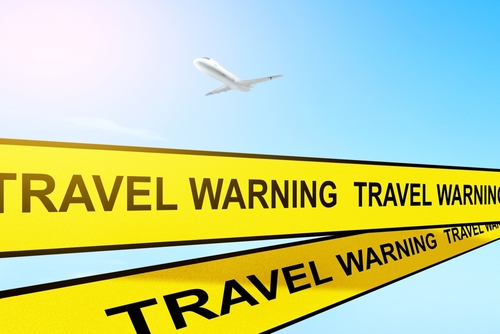
In an unprecedented move, the United Kingdom and Canada have both issued travel threat alerts against each other, urging their citizens to exercise caution due to heightened concerns over potential terrorist attacks. This mutual declaration serves as a stark reminder of the global nature of security threats and the need for constant vigilance.
The alert from the UK government warns that there is a significant likelihood of terrorist attempts to carry out attacks in Canada. British nationals are advised to remain vigilant at all times, as the threat of terrorism is not only present but considered high. The indiscriminate nature of these potential attacks, which could occur in areas frequented by foreigners, underscores the importance of staying informed through local media and heeding the advice of local authorities.
UK and Canada Declare Simultaneous Travel Threat Alerts Against Each Other | The Gateway Pundit | by Margaret Flavin
🤡🤦🏼♀️🤡🤦🏼♀️🤡 https://t.co/YKeOE14oLJ
— JKash 🍊MAGA Queen (@JKash000) November 12, 2023
Similarly, the Canadian government has cautioned its travelers to maintain a high degree of caution while in the United Kingdom. Citing previous incidents that have resulted in casualties, including knife and vehicle attacks as well as explosions, the advisory highlights the unpredictable nature of such violent acts. These incidents have predominantly taken place in London, but the risk extends beyond the capital to other parts of the country.
Despite the recent update to the UK’s travel advisory on Canada, it is noteworthy that the Canadian government has not altered its threat level since 2014. This stability in threat assessment suggests a consistent evaluation of risks to national security over the years.
🚨 US and Canada based Khalstani terrorist Gurpatwant Singh Pannun now threatens to Blow-up an Air India flight on 19th Nov, urges Sikhs to not travel by Air on 19th Nov. All this terror threats to India right under the nose of @JustinTrudeau @JoeBiden #KhalistaniTerrorist… pic.twitter.com/rZKGElDT9z
— Blogsroom (@theblogsroom) November 4, 2023
During a session in the House of Commons, opposition leader Pierre Poilievre questioned Prime Minister Justin Trudeau regarding the UK’s assessment of the threat level in Canada. Trudeau responded by emphasizing the ongoing efforts within Canada to assess and communicate threats to ensure the safety of Canadians. He highlighted that the threat level had been raised to medium in 2014 and has remained unchanged, with daily reassessments conducted by top security agencies.
Trudeau’s assurance of the continuous work by security officials to reassess threats and keep the public informed reflects a commitment to transparency and public safety. This proactive approach is crucial in a world where threats can evolve rapidly.
A spokesperson for the British High Commission in Canada declined to provide details on the change in threat level, citing the need to keep assessments confidential. The Foreign, Commonwealth and Development Office (FCDO) maintains that it reviews threats to British nationals from international terrorism using comprehensive resources and information.
The spokesperson further stated that it is not the place of the UK government to comment on the Canadian government’s assessment of the threat from terrorism. This respect for the sovereignty of each nation’s security evaluations underscores the complexity of international relations when it comes to matters of national safety.
As citizens of both nations face these warnings, it is a sobering reminder of the ever-present need for cooperation and information sharing between countries. In an era where threats know no borders, the mutual declarations serve as a call to remain united in the face of adversity and to support one another in safeguarding our global community.
In conclusion, the simultaneous travel threat alerts issued by the UK and Canada are a reflection of the ongoing challenges posed by terrorism. Both governments are taking necessary precautions to protect their citizens, and it is incumbent upon travelers to heed these warnings and stay informed about the security situation in their destination countries.










